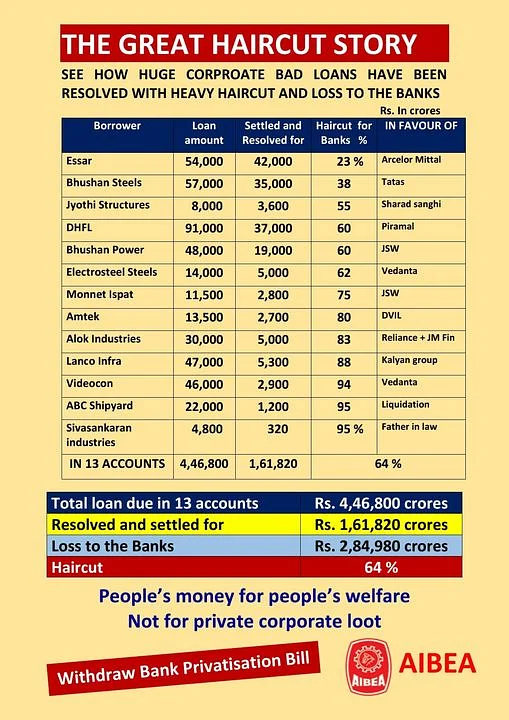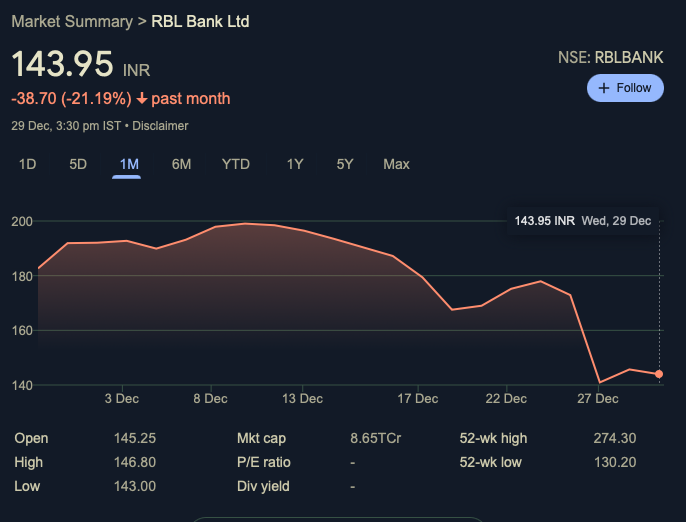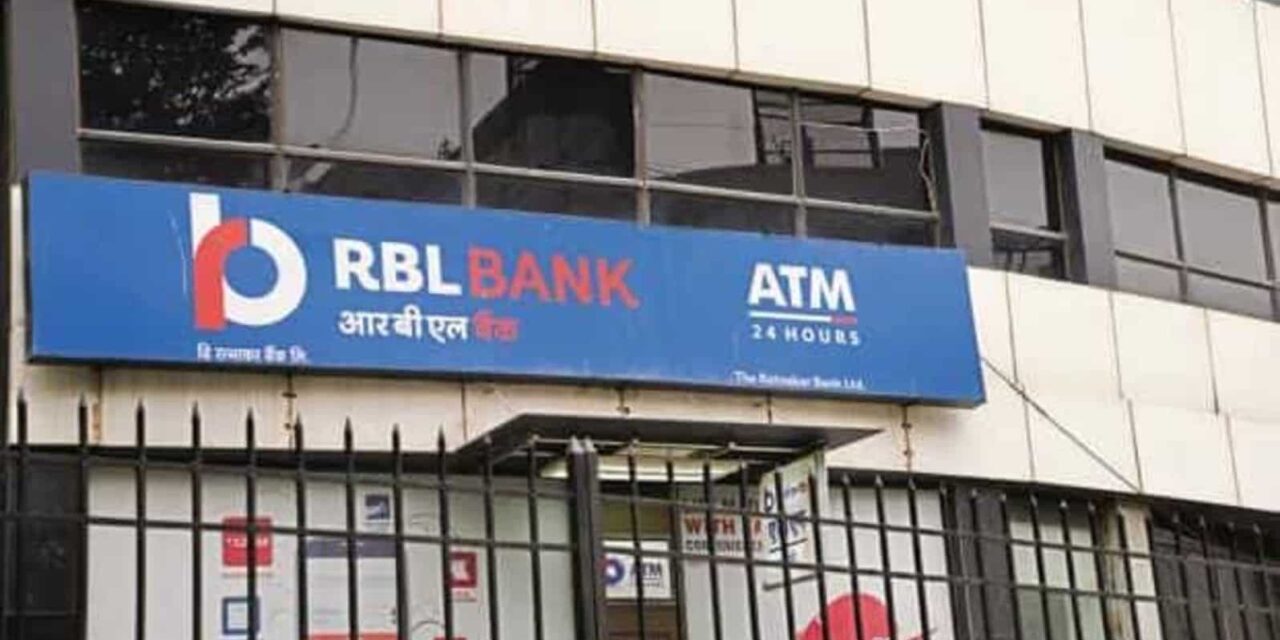The Ratnakar Bank Limited (RBL) has recently replaced former MD and CEO Vishwaveer Ahuja with Rajeev Ahuja as the interim MD and CEO.
After the change at the helm, shares of RBL Bank plummeted as much as 23 per cent on Monday, and brokerages re-evaluated their ratings for the bank.
Rating agencies ICRA and CARE are monitoring events at RBL Bank closely. The Reserve Bank of India (RBI) has nominated Yogesh Dayal as its director to the RBL bank board for 2 years which is being seen by analysts as “an intervention by the government to save the private bank.”
Following this, the All-India Bank Employees Association (AIBEA) – the largest bank union in India has written a letter to Finance Minister Nirmala Sitharaman asking her to merge the RBL with a public sector bank.
“It is observed that the total advances of this Bank have doubled during the last few years.
From about Rs 29,000 crores advances in 2017, It has crossed Rs 58,000 at present. There are also reports that the Bank has been overindulging retail credit, micro-financing and credit cards and consequently burnt its finger resulting in weakening the financials of the Bank.

In the background of the problems encountered by private Banks like Yes Bank and Lakshmi Vilas Bank last year, we urge upon to immediately intervene in the matter in the Interest of Depositors of this private sector bank and consider necessary steps including a merger of this bank with a public sector bank,” the letter read.
Talking to media , AIBEA general secretary, CH Ventakchalam said that “the bad loans and Gross Non-Performing Assets (GNPA) of the Bank have been swelling in recent years.” “In 2017, the Gross NPA of the bank was only Rs 357 crores and today it is more than Rs. 2,600 crores,” highlighted Ventakchalam.
After the analysis, AIBEA calculated: In 2020 and 2021 the operating profits were Rs 2,752 crore and Rs 3,091 crore respectively.
As per the data, Rs 2,246 crore and Rs 2,583 crore have been spent for the settlement of bad loans, following which the net profit for the two years was Rs 506 crore and Rs 508 crore respectively.
“There is a tendency on the part of old generation private Banks to become very big banks like the newly incorporated private banks through cut and paste method,” he added.

The abrupt change at the top of the bank, saw market analysts sound caution as regards the road ahead for the bank.
“We believe that with such a transition, banks with the RBI’s permission should give more solid reasoning for the actions of the regulator as minority investors are important stakeholders,” commented brokerage CLSA as per the media reports.
The Securities and Exchange Board of India (SEBI) called a board meeting on Tuesday and the issues of changing the lock-in period for anchor investors from the present 30-day norm, fixing a separate price band for wealth investors (NIIs) segment and putting restrictions on the use of startup IPOs funds for unidentified were discussed, following the developments at the RBL bank.









